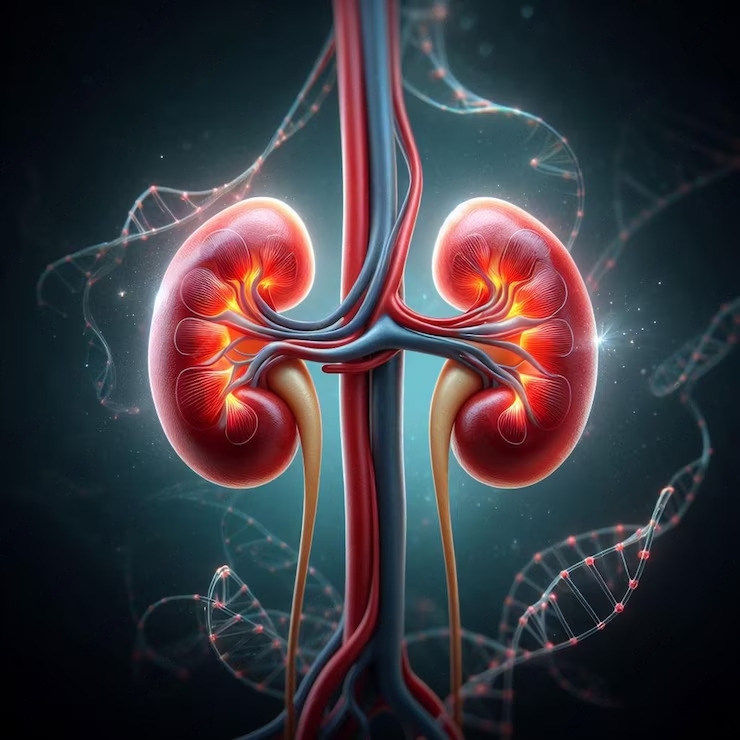Nephrectomy
Nephrectomy involves removing all or part of a kidney. A radical nephrectomy removes the entire kidney along with adjacent structures like the ureter, adrenal gland, or lymph nodes. In a partial nephrectomy, only diseased tissue is removed, preserving healthy kidney tissue. It’s typically done for kidney cancer, benign tumors, or severely damaged kidneys.
Nephrectomy is commonly performed to treat kidney cancer or remove a noncancerous (benign) tumor. In some cases, it may be necessary to address a diseased or severely damaged kidney.

Symptoms
Nephrectomy is commonly employed for kidney cancer treatment. Symptoms of kidney cancer may not manifest in early stages, but as the disease progresses, signs may include:
- Blood in urine, appearing pink, red, or cola-colored
- Persistent back or side pain
- Loss of appetite
- Unexplained weight loss
- Fatigue
- Fever
When to access Medical Care
Nephrectomy for kidney cancer is typically considered when other treatments cannot effectively manage the disease or if the cancer is advanced and cannot be treated with less invasive methods. However, the decision to undergo nephrectomy depends on various factors, including the stage of cancer, overall health, and individual circumstances. In some cases, nephrectomy may be recommended as part of the primary treatment plan to remove the cancerous kidney and potentially cure the disease. It’s essential to discuss treatment options thoroughly with healthcare providers to make the best decision based on the specific situation.
Determinants of risk
Factors that can increase the risk of kidney cancer include:
Older age: The risk of kidney cancer tends to increase with age.
Smoking: Individuals who smoke are at a higher risk of developing kidney cancer compared to nonsmokers. However, this risk decreases after quitting smoking.
Obesity: People who are overweight or obese have a higher risk of kidney cancer than those with a healthy weight.
High blood pressure (hypertension): Hypertension is associated with an increased risk of kidney cancer.
Treatment for kidney failure: Individuals who undergo long-term dialysis to manage chronic kidney failure are at a greater risk of developing kidney cancer.
Certain inherited syndromes: Some inherited syndromes increase the risk of kidney cancer, such as von Hippel-Lindau disease and hereditary papillary renal cell carcinoma.
Family history of kidney cancer: Having a close family member with kidney cancer raises the risk of developing the disease.
Recovery process
Recovery duration varies, contingent on factors like patient characteristics, chosen procedure, and the extent of severity.
Why entrust your care to us?
At Steps 2 Cure, our foundation of trust is built upon several key pillars that ensure your confidence in our services and expertise. Our team comprises highly qualified professionals with extensive experience in their respective fields. Their knowledge and skills enable us to offer you the best possible care and solutions for your medical needs. We understand that each individual is unique, and so are their healthcare requirements.
That’s why we prioritize tailoring our treatments and approaches to your specific circumstances, ensuring that you receive care that is truly designed for you. You are at the heart of everything we do. Your comfort, concerns, and aspirations guide our efforts. Our compassionate approach ensures that you feel valued and supported throughout your healthcare experience.
To commence the treatment procedure, you can start by forwarding your questions via WhatsApp at (+91 9999652964) or by sending an email to care@steps2cure.com. Our team will ensure a swift response to your queries.
Abdominoplasty
Still have a Query?
Your health and peace of mind matter to us, and we’re dedicated to addressing any inquiries you may have with care and expertise. Feel free to reach out.
